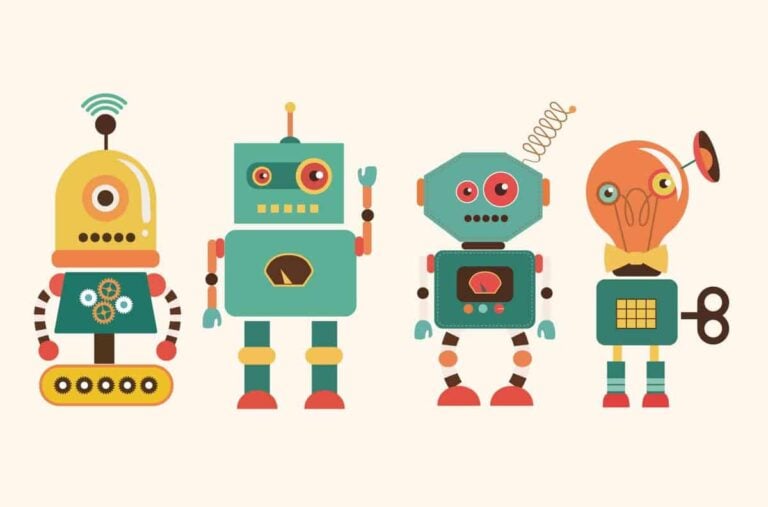The rise of the robot writers is here. Computers are replacing human writers without you realising it. Hal just took my job.
The Associated Press (AP) already uses them. These robot journalists don’t need insurance or a pension, pay or annual leave – or even sleep. This lets publications react to unforeseen events such as earthquakes, in real time, without stirring a human hack from their slumbers.
The AP isn’t alone. Fox auto-generates some sports recaps; Yahoo uses similar tech to produce fantasy sports reports tailored to individual users. And Automated Insights launched a free service based on Wordsmith, the technology it uses to generate stories for companies like the AP.
Much like its competitors, Automated Insights usually works with large customers to create templates that its Wordsmith software fills with text. But this new service allows anyone to create their own templates and dump data into them. It’s taken things one step further as the service promises to “create thousands of unique, personalized articles in the time it takes to write just one.”
But could AI-penned copy ever fool human readers? Unfortunately, yes.
A recent test conducted by The University of Reading misled one-third of the judges at scientific powerhouse The Royal Society into believing a computer program was a 13-year old boy from the Ukraine called Eugene Goostman.
It was the first time a machine had passed the 65-year-old Turing Test, which determines a machine’s ability to exhibit behaviour equivalent to or indistinguishable from human behaviour.
Does this mark the era of human-like AI? Not really. Many scientists argue the test tricked participants as the program pretended to be a non-native English speaker. But these programs, or chatbots, frequent the internet more than their human counterparts, with 61.5 per cent of internet traffic generated by these automated bots, research reveals.
I sense you’re rolling your eyes now. How could anyone ever be fooled by a robot posing as a human? Those sort of lowered expectations are exactly what the bots are depending on. It explains why they prefer to impersonate non-English-speaking humans. It also explains why eminent psychologist Dr. Robert Epstein was once hoodwinked into falling in love with a bot that he believed was a beguiling Russian lady.
Rise of the machines
For us creative sorts, a robot’s talent is sadly not limited to mimicking a teenager or dubious online catfishing. Technical developments have generated complex algorithms to transform analytical left brain operations into imaginative right brain creations.
For example, researchers at Spain’s University of Malaga developed a program called “lamus” to compose music using a unique and complex algorithm. Robots have also learnt how to paint and develop video games. From my perspective, the most worrying development is the emergence of robo-writers.
AI algorithms have learnt to write political speeches and AI-authored books have hit the shelves, including Darby Larson’s Irritant and Nick Montfort’s World Clock. The 2014 National Novel Writing Month literacy contest saw hundreds of entrants ditching their pens and instead writing code for fiction-generating robots to write the next for them, according to recent reports.
The prose may not be perfect, but it doesn’t make their very existence any less concerning.
Robot for hire
If the notion of robots writing bestselling novels, composing music and painting masterpieces wasn’t bad enough – they could be after your job.
By 2018, Gartner Research predicts robotic writers will produce 20 per cent of all business content you read and three million workers will be supervised by so-called “robo-bosses”. And Kris Hammond, founder of Narrative Science, predicted 90 per cent of the news read by the general public would be generated by computers by 2025.
But is the copy any good?
The GIGO (Garbage In Garbage Out) rule could save writers, for now. Robots can churn out predictable formulaic pieces. But the value of human wordsmiths begins and ends with more than just the words. It depends intrinsically on the ideas.
An article’s subject matter draws readers in with a distinct voice, angle and opinion about current events and issues. It is the unexpected nuggets of text that humanize content, engage readers and create a tone appropriate for the target audience. Can a robot reply to comments and enquiries about an article that it’s written? And does a human want to talk with a robot about an article if there isn’t a human mind behind the concept?
It is unlikely that writers will be completely replaced by robotic authors in the near future. Hammond went on to explain his 2025 prediction by stating: “That doesn’t mean that robots will be replacing 90 per cent of all journalists, simply that the volume of published material will massively increase.”
While artificial intelligence is developing at a fast pace, artificial creativity is a completely different kettle of fish. And if a robot shows signs of a creative mind, is it the machine or the programmer that exhibits creativity?
It’s a fascinating topic, and one that I will happily write about in the years ahead as a very human writer who loves technology.

